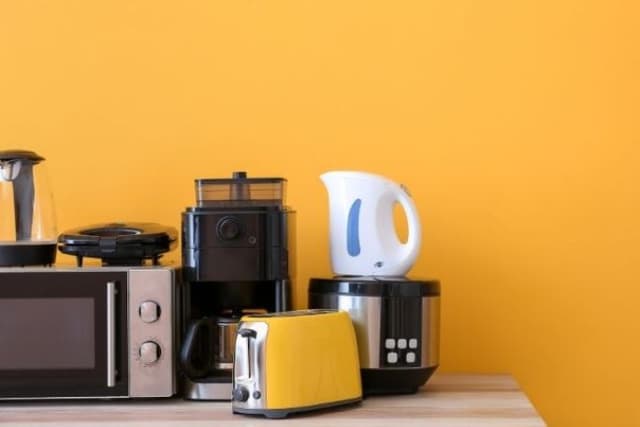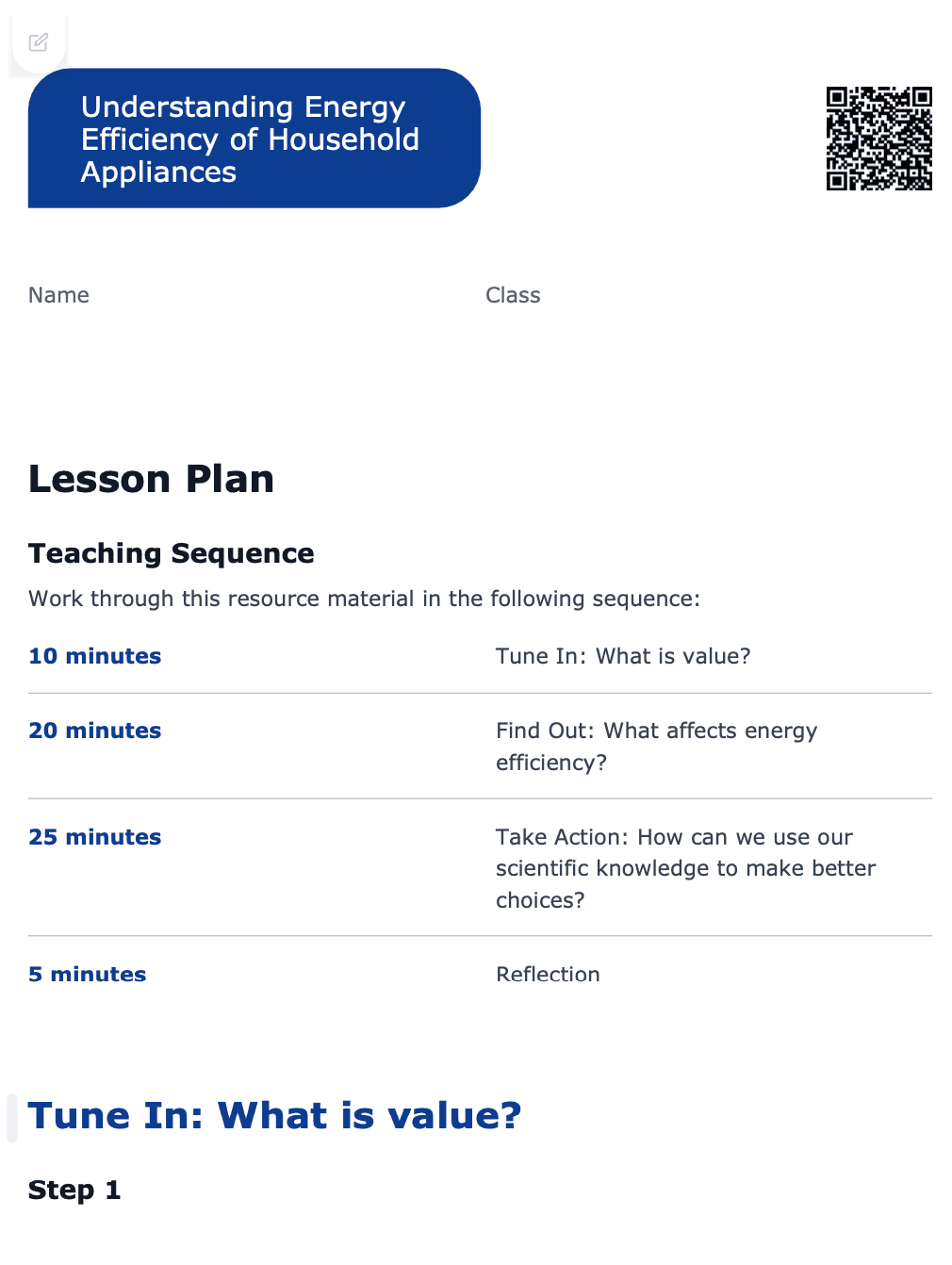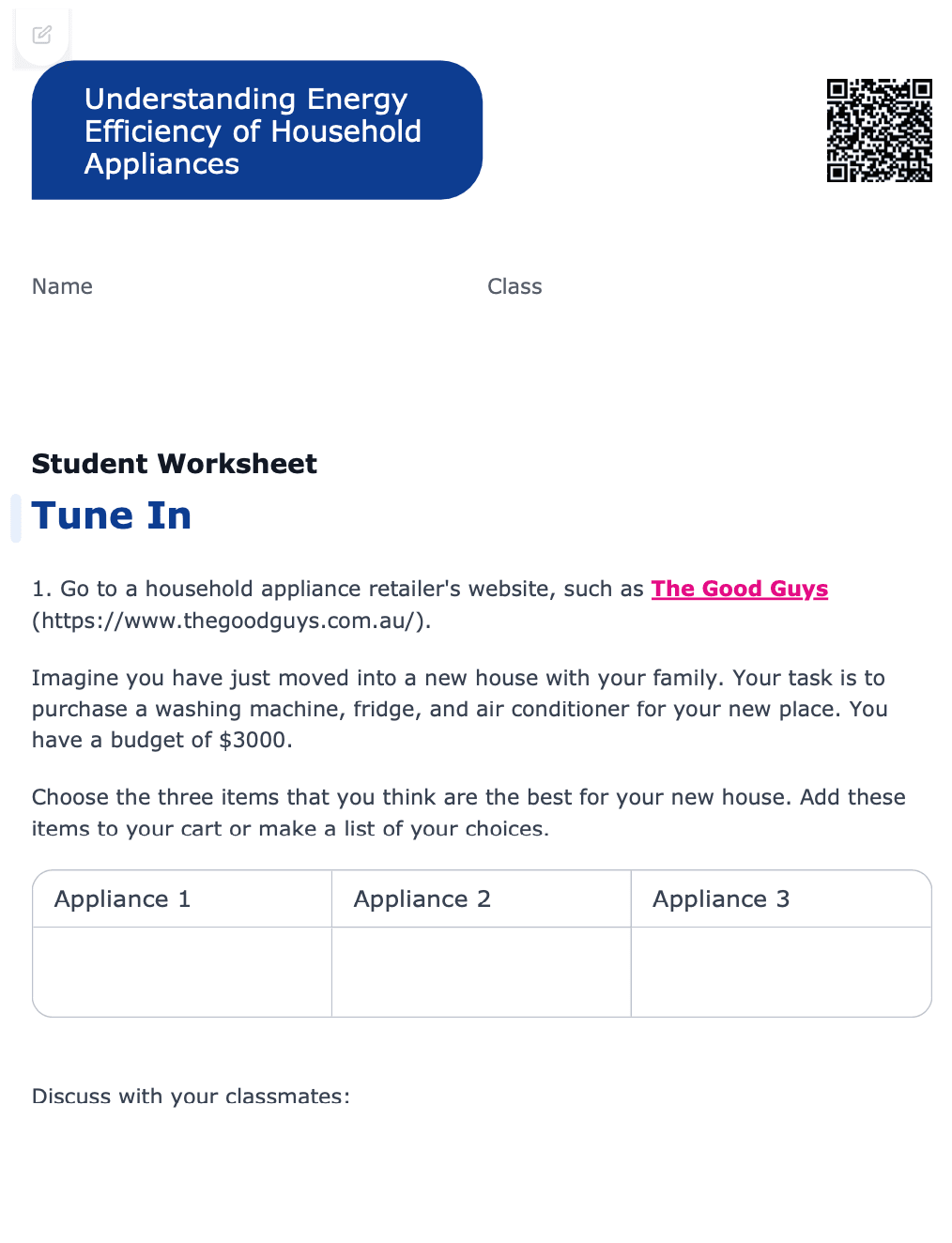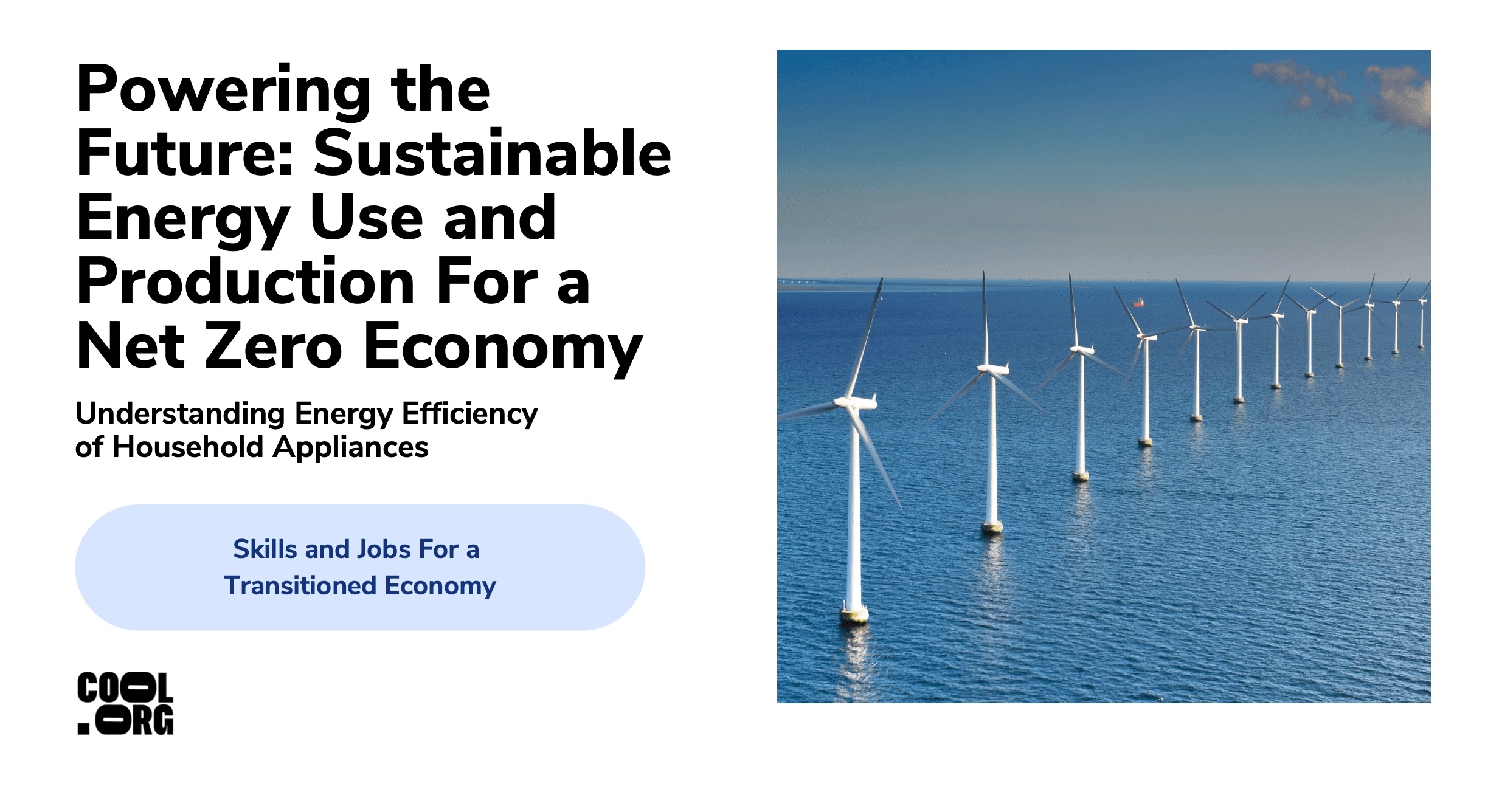
Understanding Energy Efficiency of Household Appliances
Lesson6 of 11 in this unit
SecondaryYear 9SciencePhysicsEnvironmentalClimate ChangeEnergySustainabilityEconomicIndustry, Innovation and InfrastructureJob Ready
Summary
Lesson Guides and Printables
Lesson Plan

Student Worksheet

Visual Explainer

Teacher Content Info
